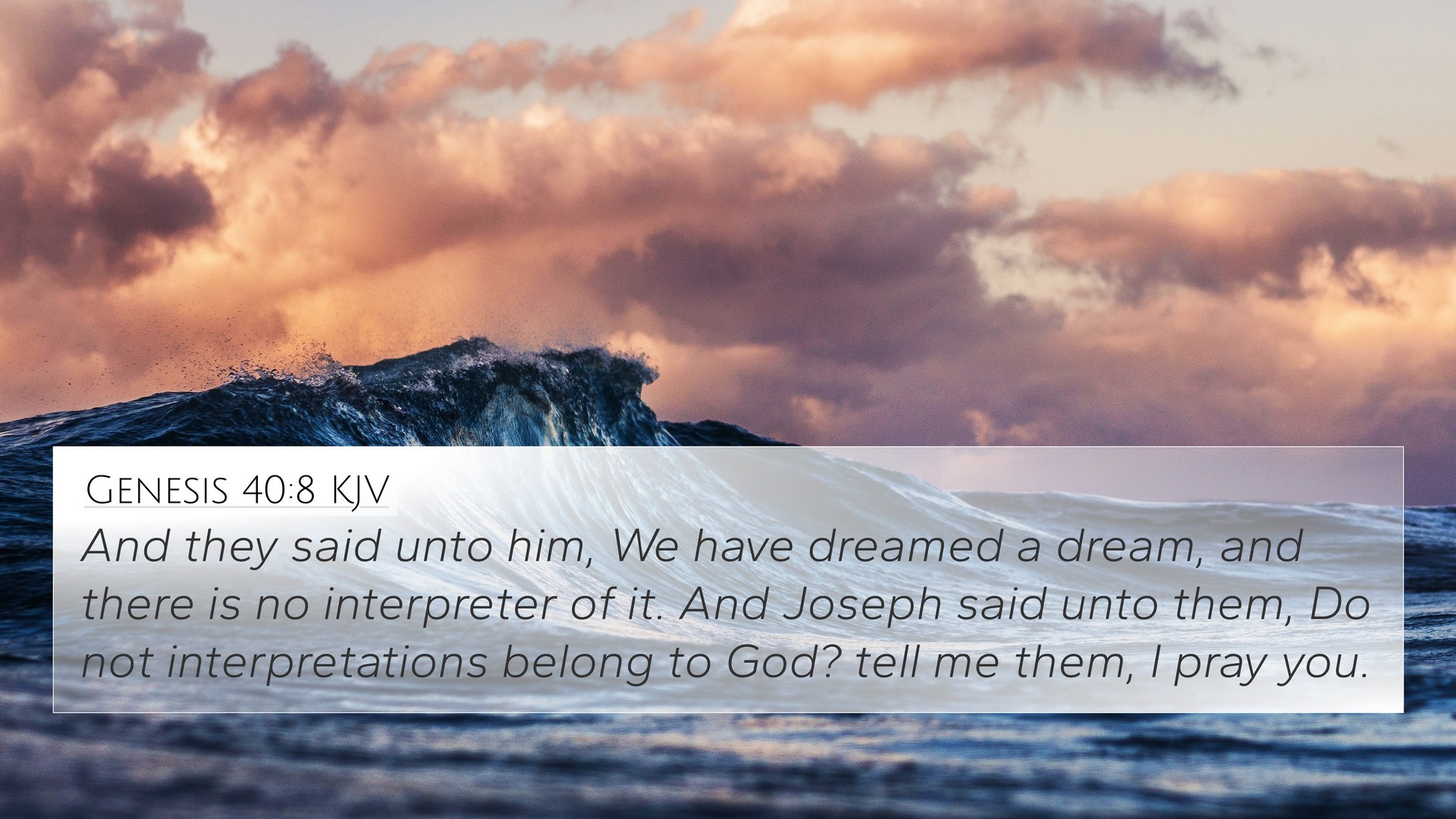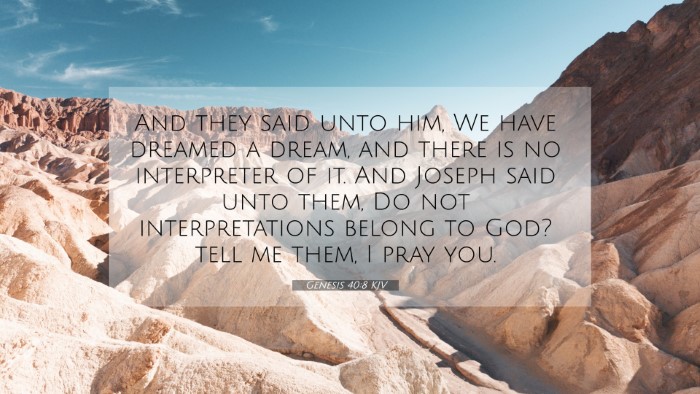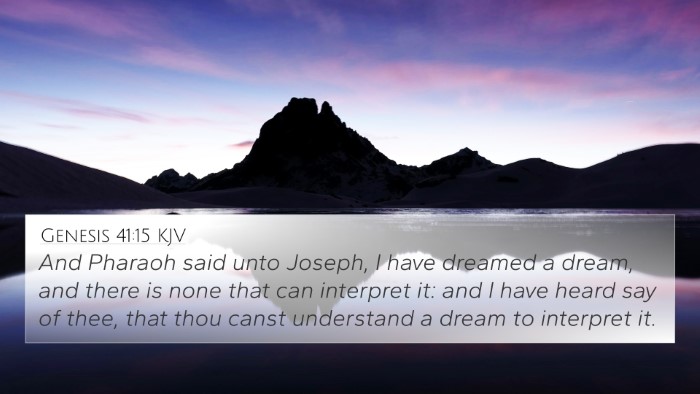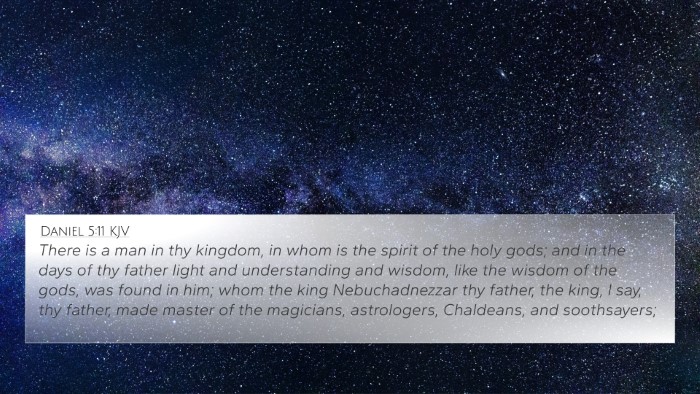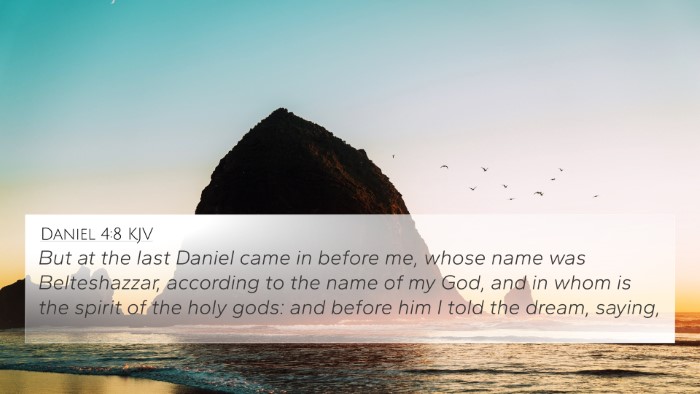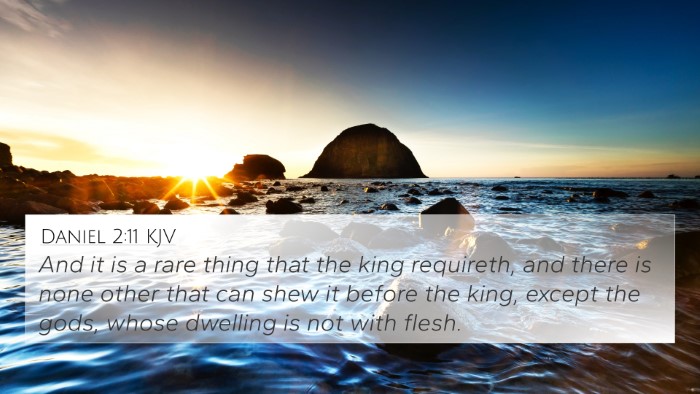Summary of Genesis 40:8
"And they said unto him, We have dreamed a dream, and there is no interpreter of it. And Joseph said unto them, Do not interpretations belong to God? tell me them, I pray you."
Context and Overview
This verse occurs in the narrative of Joseph's time in prison, following his unjust imprisonment due to false accusations. Here, Joseph encounters Pharaoh's chief butler and baker, who are troubled by dreams they have had. This provides a moment of divine opportunity, showcasing Joseph's faith and the sovereignty of God in his life.
Commentary Insights
- Matthew Henry: He emphasizes Joseph's response as not just a humble admission that he is not an interpreter but a reassurance that God alone has the power to interpret dreams. Henry notes it reflects Joseph's faith and acknowledgment of God's sovereignty.
- Albert Barnes: Barnes highlights the necessity of turning to God for understanding. He points out that dreams in the ancient Near Eastern culture were taken seriously, and through Joseph, God intended to reveal His power and purpose. Joseph's question was an opportunity for others to reflect on their spiritual need.
- Adam Clarke: Clarke discusses the significance of dreams in Biblical context, focusing on how God spoke through them. He suggests that Joseph’s role as an interpreter is a foreshadowing of his later prominence in Pharaoh's court. Clarke notes the irony that while the butler and baker were distressed, Joseph was confident in God’s ability.
Thematic Connections
This verse opens a dialogue about the themes of divine revelation and the interpretation of dreams, which can be cross-referenced throughout Scripture. Joseph's faith amidst trials is an example to believers across generations.
Related Bible Verses: Cross-References
- Genesis 37:5-10: Joseph's own dreams that set the stage for later interpretations, demonstrating God's communication through dreams.
- Genesis 41:14-30: Joseph's later interpretation of Pharaoh's dreams, solidifying his role in God’s plan.
- Daniel 2:17-19: Daniel seeks God's revelation for the king’s dream, highlighting that God gives understanding of mysteries.
- 1 Corinthians 12:8: The spiritual gift of interpreting messages from God as an extension of divine wisdom.
- Job 33:14-15: God speaks in dreams, emphasizing the importance of divine interpretation.
- Matthew 2:12-13: God communicates through dreams to guide Joseph the husband of Mary, further correlating the importance of dreams in divine guidance.
- Acts 2:17: Prophecy and visions in the New Testament echo the significance of God communicating through dreams.
Interpretive Themes
Joseph’s response to the butler and baker can symbolize God's provision and the importance of faith in interpreting life's circumstances. This instance invites deeper reflection on God's role in providing understanding through spiritual means, reinforcing the importance of prayer and dependence on God.
Comprehensive Study and Cross-Referencing
For those digging deeper into the narrative, this verse can be situated within various study methods. It may serve as a point of comparative analysis, linking Joseph's experiences with those of other Biblical figures who received divine revelations through dreams or visions.
Tools for Bible Cross-Referencing
Executing a cross-reference study can enrich understanding. By employing a Bible concordance, one can effectively find themes like divine guidance and interpretation across both the Old and New Testaments. Utilizing a cross-reference Bible study guide may facilitate exploring how God communicates through dreams.
Final Thoughts
Genesis 40:8 offers a rich foundation for understanding Joseph's position not only in his own narrative but also in the unfolding story of God's people. It encourages believers to seek divine interpretation and trust in God's overarching plan.
